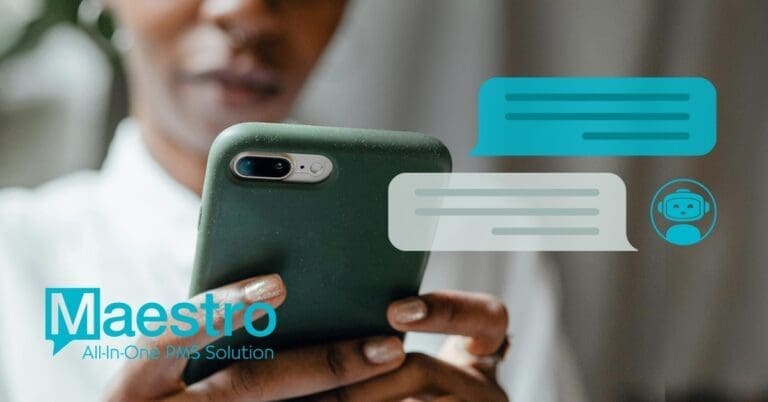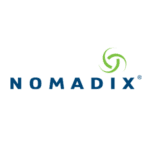Hotels often lag in implementing digital transformation and AI due to a combination of factors.
 Key among these is the perception of high costs and complexity, which can be daunting, especially for smaller establishments.
Key among these is the perception of high costs and complexity, which can be daunting, especially for smaller establishments.
There’s also a strong adherence to traditional methods rooted in the hospitality industry’s emphasis on personal, human touch, leading to a reluctance to adopt seemingly impersonal technology.
Concerns about data privacy and security further inhibit willingness to embrace digital change. Moreover, a lack of clear understanding of the benefits and capabilities of AI and digital tools results in hesitation and slow adoption rates in the hotel sector.
Let’s dive in and address these concerns.
How AI and digital transformation can enhance the timeless charm of hotels
Embarking on a digital revolution, the hospitality industry stands at the precipice of transformation. AI and digital advancements promise to elevate the timeless charm of hotels, infusing tradition with innovation. This harmonious blend enhances guest experiences, redefining luxury, and comfort in the modern era. Let’s explore this exciting journey!
In the dynamic landscape of the hospitality industry, the integration of Artificial Intelligence (AI) has become a topic of animated discussion, sparking a spectrum of emotions from excitement to skepticism.
The key question many are asking is, “How can AI coexist with the essential human element in hotels?””
This article delves into understanding these fears, uncertainties, and doubts about AI in hotels and outlines steps to harmonize these advanced technologies with the indispensable human touch.
Understanding the AI wave in hospitality
The hospitality industry is renowned for its emphasis on personal touch and customer service. The introduction of AI, with its seemingly impersonal nature, might initially appear as a threat to this tradition. However, AI’s role is not to replace human interaction but to enhance and complement it. It’s about using technology to streamline operations, personalize guest experiences, and allow hotel staff to focus more on delivering exceptional service.
Addressing the fear: the human-AI partnership
One of the primary fears surrounding AI in hotels is the potential loss of jobs. But let’s reshape this perspective. AI in hotels isn’t a replacement for human staff; it’s a partner that takes over mundane, repetitive tasks. This partnership allows hotel employees to engage more meaningfully with guests, offering a personal touch that no machine can replicate.
For instance, AI can handle routine inquiries and bookings, while the human staff can focus on providing personalized care and handling complex guest needs. This synergy enhances operational efficiency and elevates the guest experience.
Overcoming uncertainty with transparency
Uncertainty often stems from a lack of understanding. To overcome this, hotels incorporating AI should focus on transparency. This means educating both staff and guests about the role of AI in the hotel. For example, if an AI system is used for personalizing guest experiences, hotels should explain how data is used responsibly to tailor services while ensuring privacy and security.
Tackling doubt with proven success
Doubts about the effectiveness of AI can be addressed by showcasing real-life examples and success stories. Hotels that have successfully integrated AI technologies, such as chatbots for customer service, smart room customization, or AI-driven concierge services, can serve as benchmarks. Sharing these success stories helps illustrate the tangible benefits of AI in enhancing guest satisfaction and operational efficiency.
Steps to harmonize AI with human touch in hotels
Education and training: Investing in educating and training staff about AI technologies is crucial. This knowledge empowers them to work alongside AI tools effectively, ensuring a seamless integration of technology and human service.
Personalization with a purpose: Use AI to gather insights into guest preferences, but let the human staff use this information to provide personalized services. AI can suggest that a guest prefers a quiet room away from the elevator, but it’s the thoughtful gesture of the staff to ensure this preference is met that makes the difference.
Balancing tech and touch: Striking the right balance between automated services and human interaction is key. For example, while check-ins can be automated, having a staff member personally greet guests can add a warm touch.
Ethical use of AI: Address privacy concerns by implementing AI solutions that are ethical and compliant with data protection laws. Transparency in how guest data is used is paramount to building trust.
Feedback mechanism: Establish a system for both guests and employees to provide feedback on AI services. This feedback is invaluable for continuous improvement and ensuring that the technology meets the needs and expectations of all users.
Celebrating human stories: Highlight and celebrate the stories where human employees have gone above and beyond in guest service. This reinforces the value of the human touch in the hospitality experience.
Innovative AI solutions: Explore innovative uses of AI that can delight guests, such as AI-driven personal assistants in rooms, or robots that can provide entertaining and informative tours of the hotel.
Community and cultural integration: Use AI to provide guests with information about local attractions, events, and cultural experiences, enhancing their stay. Human staff can then offer their insights and recommendations, adding a unique, personal touch..
Common beliefs and misconceptions about AI and digital transformation in the hotel industry
Limiting beliefs and misconceptions about AI and digital transformation in the hotel industry can hinder progress and innovation. Here are some common ones:
AI replaces human staff: A common belief is that AI will replace human workers, leading to job loss. However, AI is generally used to enhance customer service, automate repetitive tasks, and support staff, rather than replace them.
Loss of personal touch: Some fear that digital transformation will lead to a loss of the personal touch that is crucial in hospitality. AI can free up staff to focus on more personalized guest interactions by handling routine tasks.
AI is only for big chains: The belief that only large hotel chains can benefit from AI is another misconception. Small and medium-sized hotels can also leverage AI for improved efficiency, guest experience, and competitiveness.
Data privacy concerns: While data security is crucial, some hotels may overestimate the risks and underutilize AI and digital tools. Proper security measures allow hotels to safely use AI to enhance guest experiences.
One-size-fits-all solution: There’s a misconception that digital solutions are generic and not customizable. AI and digital tools can be tailored to the specific needs and goals of each hotel.
Guests prefer traditional methods: While some guests do prefer traditional service methods, a growing number seek tech-savvy experiences. Not adapting could mean missing out on a significant market segment.
Instant results expected: Some hoteliers expect immediate results post-implementation. However, like any strategic initiative, it takes time to see the full benefits of digital transformation.
Lack of understanding of AI capabilities: Misunderstanding what AI can do leads to either underutilization or unrealistic expectations. Education and consulting with experts can help hoteliers make the most of these technologies.
Resistance to change: A general resistance to change, often due to comfort with traditional methods, can prevent hotels from adopting new technologies that could significantly benefit their operation and guest experience.
Understanding and overcoming these misconceptions is crucial for successfully integrating AI and digital transformation in the hotel industry.
Conclusion: embracing AI as a catalyst for enhanced hospitality
In conclusion, the integration of AI in hotels is not a harbinger of a cold, robotic future, but rather a gateway to a new era of enhanced hospitality where technology and human touch coexist in harmony.
By addressing fears, uncertainties, and doubts through education, transparency, and real-world examples, and taking deliberate steps to ensure that AI complements the human element, hotels can leverage AI as a powerful tool to enrich the guest experience and empower their staff. The future of hospitality lies in this beautiful synergy between people and technology, each amplifying the strengths of the other to create unforgettable experiences
































